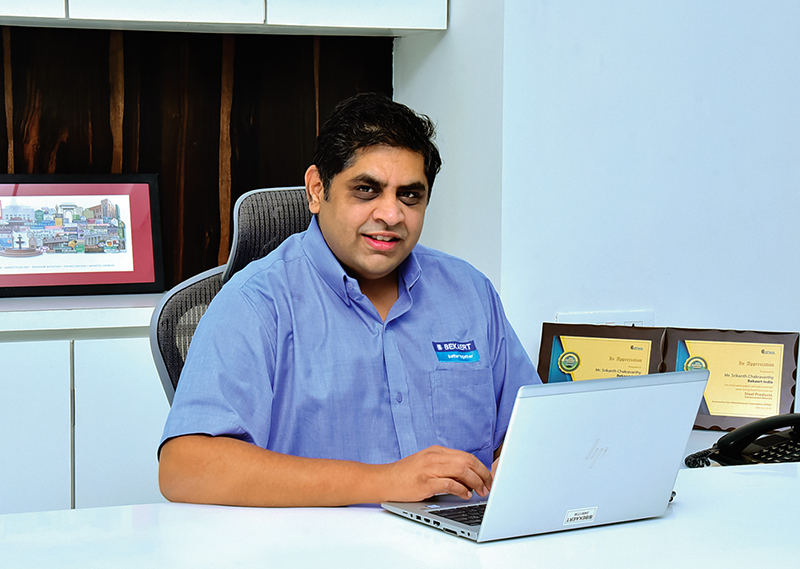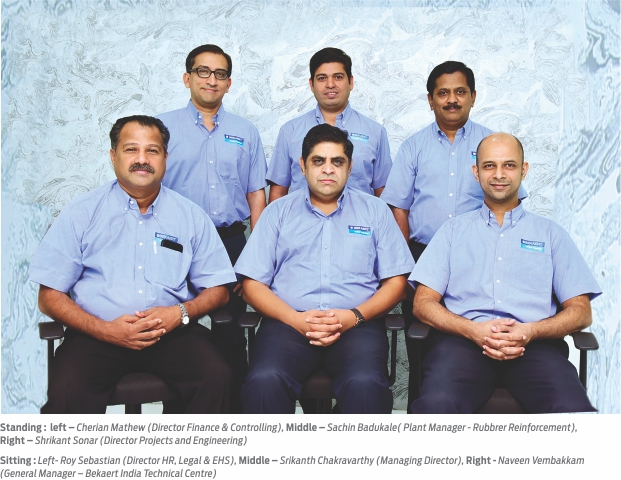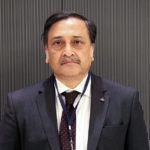With its comprehensive range of advanced steel wire products, Bekaert Industries Pvt. Ltd. (a subsidiary of globally reckoned Bekaert) has come a long way in India since its inception 20 years back. After leading the automotive market with its cutting-edge steel cords for tyre reinforcement, the company has registered remarkable presence in other crucial sectors like infrastructure, agriculture, and energy. With three plants and the production of 100,000 tonnes annually, Bekaert Industries Pvt. Ltd. is all set to steadily grow its market in India.

Wire & Cable India recently talked to Mr. Srikanth Chakravarthy, MD, Bekaert Industries Pvt., Ltd. to know the company’s perspectives on its growth in the Indian market and overall growth outlook of the Indian steel wire industry. Excerpts:
Wire & Cable India: Bekaert’s journey in India started in 1998 with its first plant near Pune. How has been the experience so far in terms of revenue and capacity achieved? How is the business now?
Srikanth Chakravarthy: Bekaert’s 20 years journey has been quite remarkable and challenging. From our first setup near Pune, we have now grown to three plants in India with a combined capacity of 100,000 tonnes for our various wire products. Bekaert remains to date the only steel cord manufacturer to make such a commitment towards the Indian tyre and hose markets.
India has shown a strong focus on automotive, infrastructure and agriculture in the recent years. Various policies have been announced, making the market very dynamic and exciting. We have collaborated with our valued customers in serving the significantly evolving market needs that they have been witness to.
WCI: Beginning with manufacture of steel tire cords, you diversified your product range over a period. Is there any plan to introduce some new products? Tell us also if you are thinking of any capacity expansion currently.
SC: Bekaert India participates in several markets such as automotive, agricultural, infrastructure, and energy through sales supported by local manufacturing as well as imports from our other plants.
We have a broad portfolio of products in India, which include steel cord for tyre reinforcement, hose wire for hydraulic and thermoplastic hose reinforcement, Dramix Steel fibres for concrete reinforcement, Hi-carbon wires for automotive spring application, Bezinal® coated wire for vineyard and fencing applications, steel fibres up to1.5micron diameter for applications in diesel particulate filters, electro conductive textiles, etc.
We are constantly scanning the market for new opportunities, but also apply priority to increasing our market presence and scale for existing products. Besides, for our existing manufacturing base, we continue to invest in capacity to meet the growth of the industry.
WCI: Have you been able to expand your market reach optimally as may be targeted by you when starting to manufacture in India? What are some of the strategies, which you may have adopted to tap the market? Tell us about your present target and objectives with regard to market penetration and applications.
SC: We entered India with an objective to be the preferred supplier of choice to our customers and our vision has not changed since then. We have methodically grown our footprint in India in line with the growth of all our customers.
Our aim is to create the highest possible value to our customers by understanding their needs better than anyone else, and applying our strategic advantages of technological leadership, manufacturing footprint (global and local), supported by a strong and competent team. Keeping this in mind, we set up a Technology Center in India, which works with our customers to meet the needs of the market. This has enabled us to have a leadership position in most of the business segments we chose to participate in.
Today our rubber reinforcement business dominates our revenue portfolio and going forward we are putting greater thrust on growing the other businesses in the agriculture, power, construction, automotive sectors as well. We have chosen segments/niches where we believe we should be, and focus on realizing a leadership position in each of them. We already have several success stories.
WCI: How do you find the demand growth for your flagship product as of now? Do you find the demand to have grown enough for you to be ready for further addition of capacity?
SC: Indian automotive growth has been very strong in recent years and seems to be promising going ahead. Furthermore, radialization growth and capacity expansions of our customers have supported the growth story for steel tyre cords in India.
Bekaert has been consistently expanding its capacity in India, as we believe we can best serve our customers by being close to them and addressing their needs in the best possible way.
WCI: Tell us about the sectors, which interest you and are crucial for your product line. How are these industries doing now and will do in near future?
SC: Automotive of course is of prime importance; however, we see strong growth opportunity in infrastructure/construction, energy, and agriculture. We are currently catering to all these sectors either through local footprint or through imports.
Looking at the current policies and investments being made, we feel these segments will continue to show promise.
WCI: What are some of the persistent issues impeding the growth of the steel wire industry in India? How do you think those issues will be addressed and how may the Govt. help?
SC: Instability in steel prices and availability of raw material continues to be a challenge. In addition, opportunistic and unsustainable pricing policies of some competitors outside India create challenges to long-term strategies for the industry as a whole. Although availability of energy has improved in the recent years, the cost of electricity in India poses a significant challenge.
We already see some improvement in ease of doing business, but we are hoping for sustainability of progressive policies by the government going forward too.





